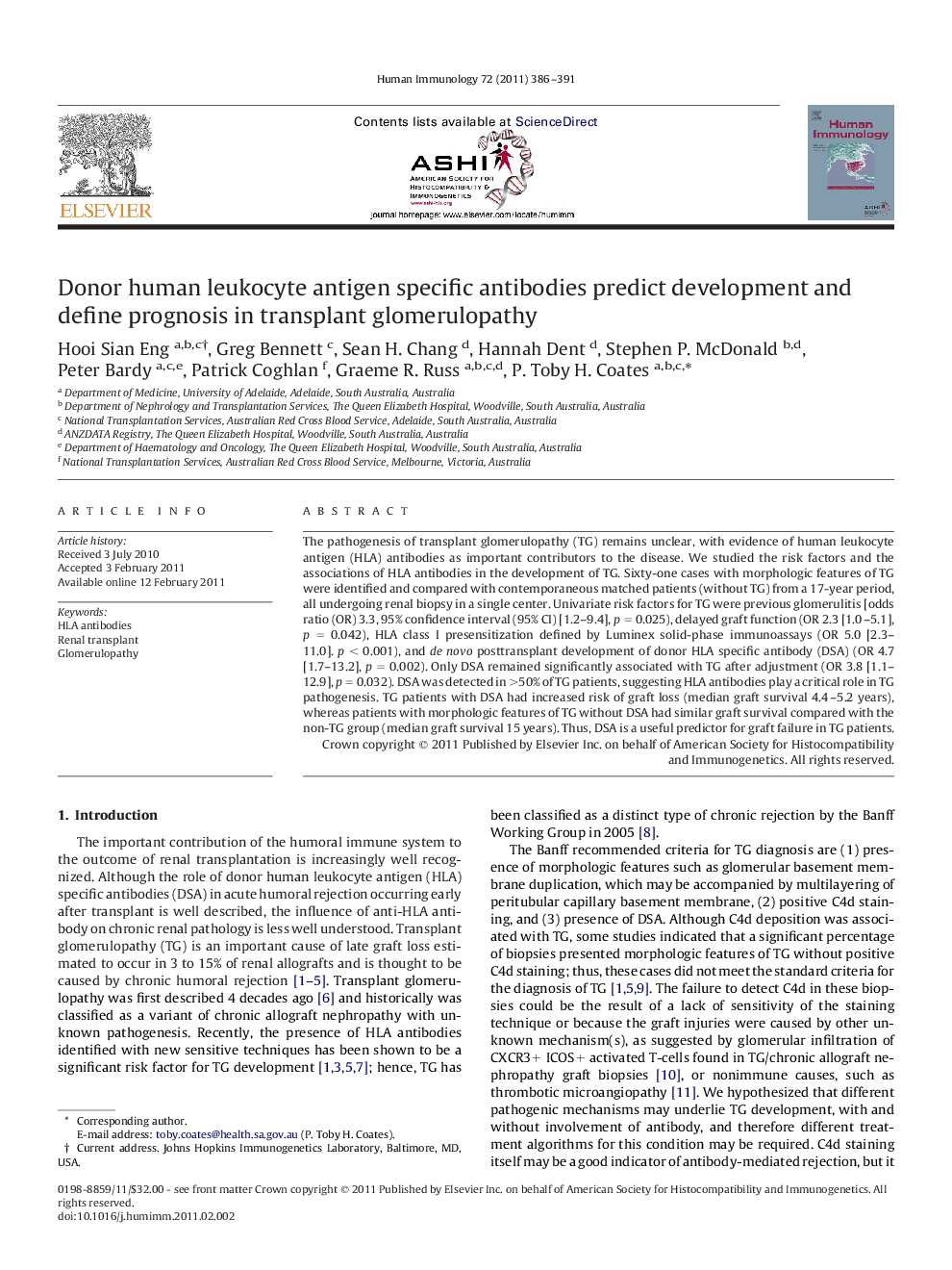| Article ID | Journal | Published Year | Pages | File Type |
|---|---|---|---|---|
| 3350984 | Human Immunology | 2011 | 6 Pages |
The pathogenesis of transplant glomerulopathy (TG) remains unclear, with evidence of human leukocyte antigen (HLA) antibodies as important contributors to the disease. We studied the risk factors and the associations of HLA antibodies in the development of TG. Sixty-one cases with morphologic features of TG were identified and compared with contemporaneous matched patients (without TG) from a 17-year period, all undergoing renal biopsy in a single center. Univariate risk factors for TG were previous glomerulitis [odds ratio (OR) 3.3, 95% confidence interval (95% CI) [1.2–9.4], p = 0.025), delayed graft function (OR 2.3 [1.0–5.1], p = 0.042), HLA class I presensitization defined by Luminex solid-phase immunoassays (OR 5.0 [2.3–11.0]. p < 0.001), and de novo posttransplant development of donor HLA specific antibody (DSA) (OR 4.7 [1.7–13.2], p = 0.002). Only DSA remained significantly associated with TG after adjustment (OR 3.8 [1.1–12.9], p = 0.032). DSA was detected in >50% of TG patients, suggesting HLA antibodies play a critical role in TG pathogenesis. TG patients with DSA had increased risk of graft loss (median graft survival 4.4–5.2 years), whereas patients with morphologic features of TG without DSA had similar graft survival compared with the non-TG group (median graft survival 15 years). Thus, DSA is a useful predictor for graft failure in TG patients.
